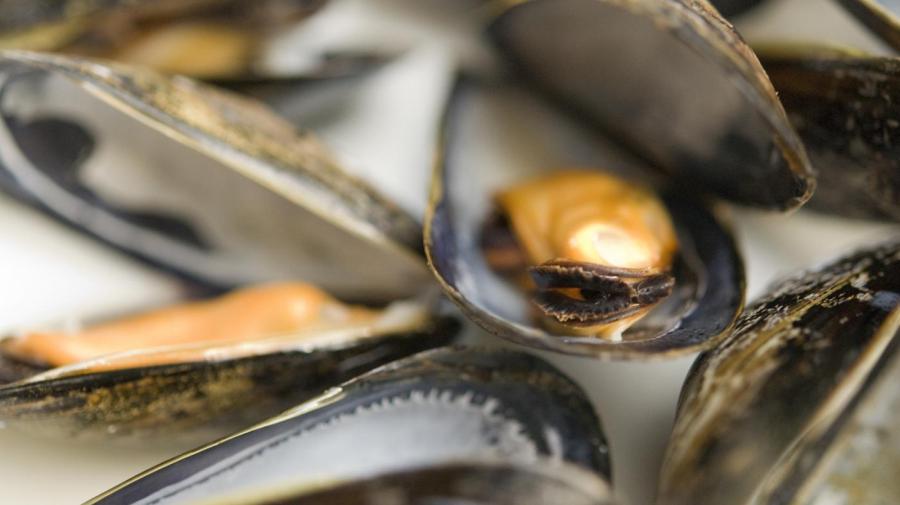How to Tell If Mussels Are Bad?

Mussels that have a strong, fishy smell, are tough and dry or have visibly broken shells are considered bad and should not be eaten. Mussels with shells that do not open during the cooking process should also be avoided.
Unlike clams, a mussel may be alive and fit for consumption even if its shell is open before it is cooked. Tapping the shell lightly should cause it to close back up. If it does not, the mussel may be dead and should be discarded. Good mussels will open their shells during the cooking process, assuming they have been cooked for the appropriate amount of time. Mussels should be steamed between four and nine minutes, while boiled clams must cook for three to five minutes after the shells begin to open.
Mussels should be stored appropriately before cooking to prevent them from going bad. Cooks should first scrub them with a soft brush, rinse them under cold water and remove the beard, if desired. Next, they should refrigerate live mussels in a bowl with a damp cloth or towel over them, keeping the temperature constant between 32 and 45 degrees Fahrenheit. Storing them in plastic bags or airtight containers is not a good idea, as the mussels will die quickly and begin to spoil.





